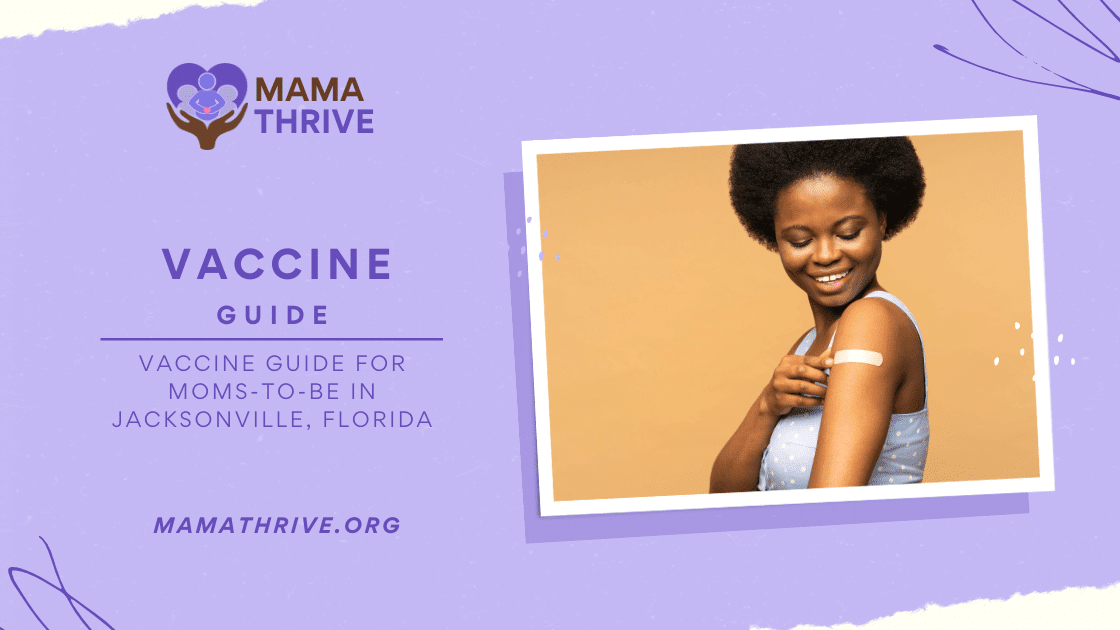Vaccines during pregnancy are extremely important because they protect both the mother and the developing fetus from serious, sometimes life-threatening, infections. It can prevent illnesses that can lead to serious complications, such as miscarriage, preterm labor, and even death. They also help ensure the baby is born healthy and protected against certain infections that can cause serious health problems, such as brain damage, deafness, and blindness.
Getting vaccinated during pregnancy also provides passive immunity to the baby, which means the baby will have some protection against certain infections in the early months of life before they can be vaccinated themselves. This is especially important for babies born prematurely, as they may not have the same level of protection as a full-term baby.
It is also worth noting that many viruses and diseases are more severe in pregnant women, so they must protect themselves from these illnesses as much as possible. Vaccines are a safe and effective way for pregnant women to protect themselves and their developing babies from serious infections.
Vaccine Guide for Moms-to-Be in Jacksonville, Florida
- Flu vaccine
The flu vaccine is recommended during pregnancy because pregnant women are at a higher risk of severe illness and complications from the flu. Pregnancy can weaken the immune system, which makes it more difficult for the body to fight off infections. The flu can also lead to serious complications such as pneumonia, respiratory failure, and even death.
In addition, pregnant women who get the flu are at a higher risk of hospitalization and may be more likely to have a premature delivery. The flu vaccine can help protect pregnant women from getting sick and can also help protect their unborn babies. When a pregnant woman gets vaccinated, the antibodies that her body makes in response to the vaccine can be passed on to her developing baby, providing some protection against the flu in the baby’s early months of life before they can be vaccinated themselves.
- Tdap vaccine
The Tdap (tetanus, diphtheria, and pertussis) is recommended during pregnancy because it can protect both the mother and the developing fetus from serious infections caused by tetanus, diphtheria, and pertussis.
Tetanus is a serious infection caused by the bacteria Clostridium tetani that affects the nervous system and can lead to muscle stiffness and spasms, which can be fatal. Diphtheria is a bacterial infection that can cause severe throat and airway obstruction, and can also be fatal. Pertussis, also known as whooping cough, is a highly contagious respiratory illness that can cause severe coughing and difficulty breathing and can be fatal, especially in young infants.
Getting the Tdap during pregnancy can provide protection for both the mother and the developing fetus from these serious infections. The vaccine helps to protect the mother from getting infected and can also provide passive immunity to the baby before they can be vaccinated themselves. This can be especially important as babies are most at risk of severe illness from pertussis in their first few months of life.
- HPV vaccine
The HPV is recommended during pregnancy because it can protect both the mother and the developing fetus from the human papillomavirus (HPV) which is a common sexually transmitted infection. HPV can cause several types of cancer, including cervical, vaginal, and vulvar cancer in women, as well as penile and anal cancer in men.
Getting the HPV vaccine during pregnancy is safe and can provide protection against HPV-related cancer and other diseases. It works by triggering the immune system to produce antibodies that can protect against HPV infection. This protection can be passed on to the developing fetus, providing passive immunity in the early months of life before the baby can be vaccinated.
It is important to note that the Centers for Disease Control and Prevention (CDC) and the American College of Obstetricians and Gynecologists (ACOG) recommend the HPV vaccine for all women up to age 45 and it can be given at any point during pregnancy. However, it is best to avoid getting the vaccine during the first trimester, as this is the time when the baby’s organs are developing.
Common Myths About Vaccines During Pregnancy
- Myth: Vaccines during pregnancy can harm the developing fetus.
This is not true. Vaccines have been proven to be safe for pregnant women and their developing fetuses. The vaccines are thoroughly tested and monitored before they are approved for use, and they are continually evaluated for safety.
- Myth: Vaccines can cause autism.
This claim has been thoroughly debunked by multiple studies and has been discredited by the scientific community. The study that first suggested a link between vaccines and autism has been retracted and discredited.
- Myth: Pregnant women don’t need vaccines because they have a strong immune system.
Pregnant women are at a higher risk of complications from certain infections and illnesses, and vaccines can provide protection for both the mother and the developing fetus.
- Myth: Pregnant women should avoid vaccines.
Pregnant women should get the flu vaccine and the Tdap vaccine (tetanus, diphtheria, and pertussis) during pregnancy. These vaccines are safe and can protect both the mother and the developing fetus.
- Myth: It’s better to wait until after pregnancy to get vaccinated.
It’s important to get vaccinated as soon as possible during pregnancy, as certain vaccines can provide passive immunity to the baby and protect them from illnesses during their early months of life before they can be vaccinated themselves.
Stay Informed and Protected
Don’t let misinformation and myths about vaccines during pregnancy put your health and the health of your developing baby at risk. Stay informed and protected with Mama Thrive Telehealth Services.
Sign up for our services today and have access to accurate information, personalized recommendations, and easy scheduling for vaccines in Jacksonville, Florida. Join Mama Thrive Telehealth today and give your baby the best start in life!





